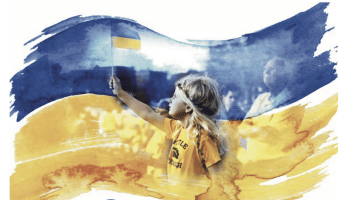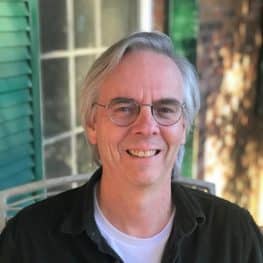NEWS
We Just Want to Live


Greg Snyder
As part of Black History Month, Taylor Branch, a distinguished historian of the Civil Rights Movement, recently delivered a lecture at Davidson College entitled “Redeeming the Soul of America: MLK and the Audacity of Faith.” Among his many good points: “The Civil Rights Movement didn’t just save Black people; it saved everybody.” By disrupting the Jim Crow mentality–the American status quo–the Civil Rights Movement opened the way for greater freedom for women, expanding options beyond the confining straitjacket of the 1950’s cult of domesticity. It created new possibilities for the gay rights movement, which took shape in the 1960’s.
The Civil Rights Movement also saved white men. It delivered them from the dehumanizing status of being social, political, and racial oppressors. Dominant white, male culture, the hand that held the whip, was itself degraded and debased; less than fully human. The Civil Rights Movement delivered them as well from a distorting ideology that defaced their basic humanity.
Of course, all these movements have faced obstacles and reversals, but overall, society has curved in the direction of greater justice, greater fairness, and greater human potential for more people. Every day at Davidson College, I see black and brown and white students, men and women, gay and straight, interacting in ways that would be utterly shocking to our parents or grandparents (or in some cases, to our younger selves!). All thanks to the many actors in the Civil Rights Movement, most of them unsung and unknown, who sat on folding chairs in church basements, who planned, who marched, who sacrificed that this country might become whole, more fully human.
On the theme of sacrifice, something analogous occurred to me on Friday night, at the event commemorating a full year of Ukrainian resistance and resilience in the face of Russian aggression. At one particularly affecting part in the program, we heard a taped statement from a soldier on the front lines. “We just want to live,” he said; “we just want to live our lives, our normal lives.” One hopes that in the 21st century, that is not asking too much.
That soldier and others like him are fighting not just for themselves and for Ukraine: they’re fighting for all of Europe, as Timothy Snyder observes: “Russia’s war is not directed only against Ukraine, but against the larger idea that European states can peacefully cooperate. If empire prevails, integration fails.” (quoted from “Why the World Needs Ukrainian Victory“). They’re fighting for the rule of law as a bedrock for international relations: that one country cannot not crush another country simply because it has the power to do so.
But even beyond that, the Ukrainians are fighting on behalf of the Russian people. A Ukrainian victory is a victory for the Russian people, currently in thrall to a twisted, imperial ideology enforced by a despot who belongs in the 18th, not the 21st century. If we abandon the Ukrainians, we abandon the Russians to the depraved system of Vladimir Putin and his cronies. The defeat of Putin means more freedom, more human potential for the Russian people. The majority of Russians may not perceive that at present, given their distorted media environment, but then again, the majority of white men in Jim Crow America thought they were doing just fine. In hindsight, we know better.
What do these grand, large-scale movements have to do with us, here in our very comfortable and cozy setting in North Mecklenburg County? We are distant in time from the police dogs and tear gas on the Edmund Pettus bridge; we are distant in space from the front lines in Ukraine. But here in our own environment, there is injustice to see and to remedy, there are battles to be fought, political victories to be achieved. Even in small ways, we can align ourselves with the spirit, the direction, and the dedication of those fighting battles that have moved the human community forward, battles that have saved us all.
Greg Snyder
Greg Snyder teaches courses on early Christianity in the Religious Studies Department at Davidson College. In recent years, he’s seen an acute need for civic and political engagement at the local level and has strayed into a second career as an activist and political organizer.


